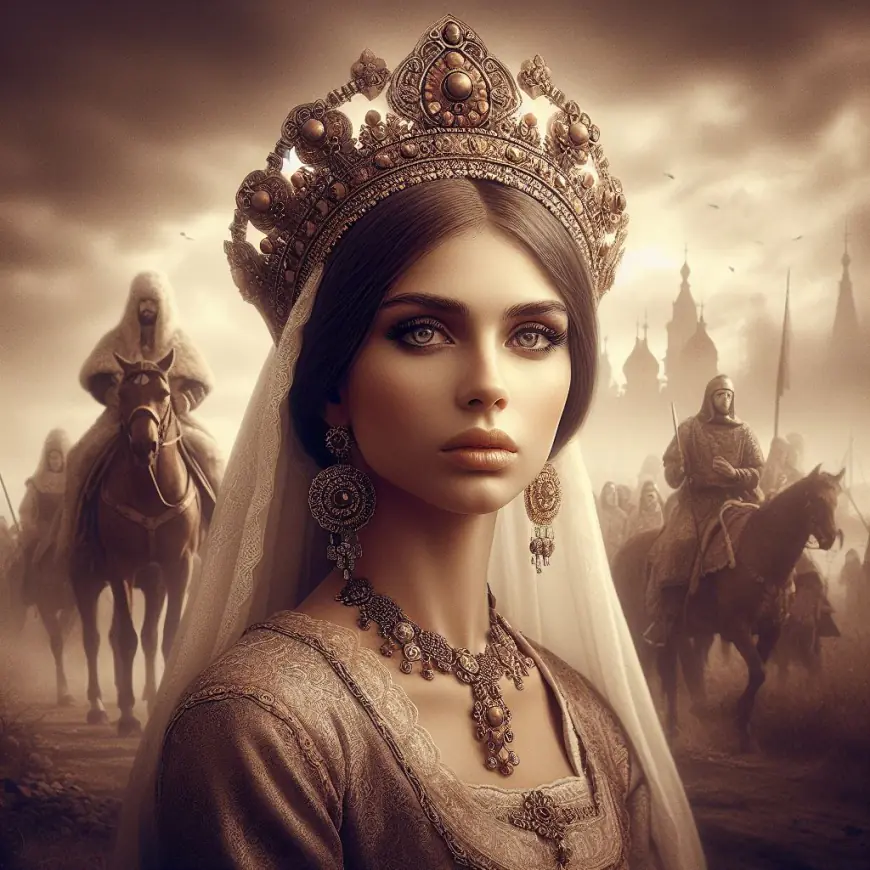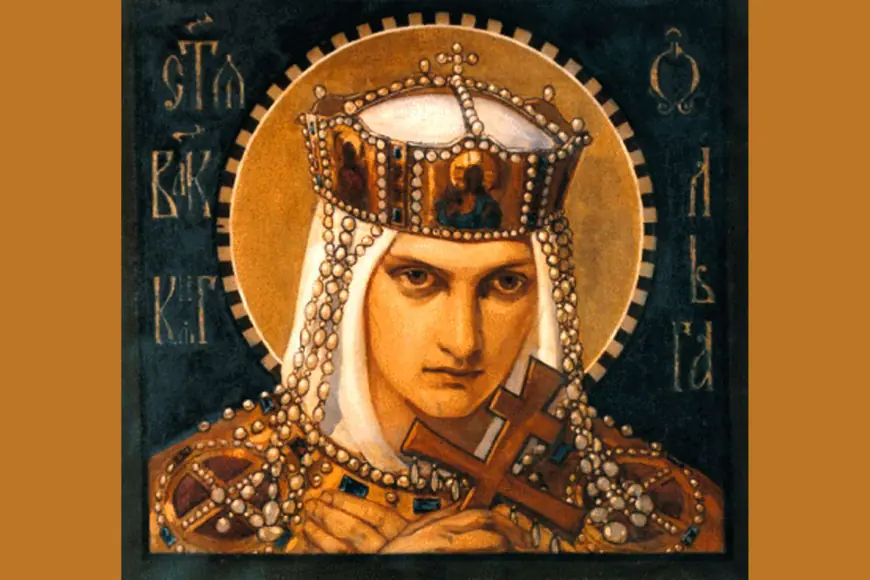The Princess Who Exterminated An Entire People For Revenge
“Discover the fiery saga of Princess Olga of Kiev, who turned her grief into a crusade of vengeance and transformed a nation.”

The Fiery Tale of Princess Olga of Kiev: A Saga of Vengeance and Power

Introduction: The Spark of Retribution
In the annals of history, few tales burn as fiercely as that of Princess Olga of Kiev. Her story is not just one of sorrow and loss but also of unquenchable fire for justice. Olga, a regal figure of the 10th century, transformed her grief into a blaze of vengeance that consumed an entire people who wronged her.
The Embers of Conflict: Olga’s Early Life and Marriage
Born into the world of the Varangians, the Viking rulers of Eastern Europe, Olga was no stranger to the harsh realities of power and conflict. Her marriage to Prince Igor I of Kiev was a union that would set the stage for a dramatic saga of love, betrayal, and revenge.
The Inferno Unleashed: The Murder of Igor and Olga’s Ascension
The Drevlians, a tribe once allied with Kievan Rus, ignited the flames of war when they brutally murdered Prince Igor, refusing to pay tribute and challenging the very foundation of Olga’s world. In the wake of her husband’s death, Olga rose from the ashes as the regent for her young son, Sviatoslav, and the embodiment of a widow’s wrath.
The Blaze of Retribution: Olga’s Campaign Against the Drevlians
Olga’s response to her husband’s demise was a calculated series of stratagems, each more cunning and devastating than the last. She invited the Drevlian emissaries to a bathhouse, only to lock the doors and set the building ablaze. She then extended an olive branch to the Drevlians, asking for their most distinguished men to honor her at Igor’s funeral, only to bury them alive upon their arrival.
The Ashes of Victory: The Fall of the Drevlians
The final act of Olga’s revenge was as brilliant as it was ruthless. She hosted a grand feast for the Drevlians who had come to discuss peace and, after they were inebriated, her soldiers massacred them. The few who escaped this slaughter were either slain as they fled or enslaved, effectively extinguishing the Drevlian tribe from history.
The Legacy of Fire: Olga’s Later Life and Sainthood
Despite her vengeful acts, Olga’s reign brought stability and prosperity to Kievan Rus. She established laws, built cities, and even converted to Christianity, becoming a saint of the Eastern Orthodox Church. Her tale is a paradox of merciless revenge and pious sanctity, a narrative that continues to captivate and inspire.
The Phoenix Rises: Olga’s Transformation from Mourner to Monarch
After the dust settled on her campaign of vengeance, Olga emerged not just as a widow avenged but as a formidable ruler in her own right. Her governance was marked by wisdom and a vision for the future of Kievan Rus. She embarked on a series of reforms that would lay the foundations for a more centralized and organized state.
Administrative Reforms: The Seeds of a Nation-State
Olga’s foresight led her to establish a system of tribute collection that was both efficient and fair, replacing the ad hoc and often brutal methods of the past. She divided the realm into administrative districts, each overseen by representatives appointed directly by her, ensuring loyalty and consistency in governance.
Diplomatic Endeavors: The Art of Peaceful Relations
Princess Olga also proved to be a shrewd diplomat. She maintained peaceful relations with neighboring states and even traveled to Constantinople, where she impressed the Byzantine Emperor Constantine VII. This visit not only secured a favorable treaty but also marked the beginning of the Christianization of Kievan Rus.
The Sacred Flame: Olga’s Christian Conversion and Legacy
Perhaps the most enduring aspect of Olga’s legacy is her conversion to Christianity. While her grandson, Vladimir, would later convert the entire nation, it was Olga who first embraced the faith. Her baptism, under the Christian name Helena, symbolized a turning point, not just for her but for the entire Slavic world.
The Saintly Glow: Canonization and Veneration
Olga’s sainthood is a testament to her complex character. Despite her earlier acts of vengeance, the church recognized her efforts to spread Christianity and her role as a civilizer and lawgiver. She is venerated as a saint with the title “Equal to the Apostles,” and her feast day is celebrated on July 11th.
The Eternal Inferno: The Impact of Olga’s Reign
The reign of Princess Olga of Kiev was a crucible from which the modern state of Kievan Rus would emerge. Her actions, both vengeful and visionary, left an indelible mark on the region’s history. She stands as a figure of both terror and reverence, a leader who wielded fire and faith with equal fervor.
The Beacon of History: Olga’s Place in Modern Memory
Today, Olga’s story resonates with those who seek to understand the power of transformation. From avenger to saint, her life encapsulates the tumultuous journey of Kievan Rus from paganism to Christianity, from tribal confederation to emerging statehood.
Conclusion: The Unquenchable Legacy of Princess Olga
Princess Olga of Kiev’s tale is a reminder of the indomitable spirit of humanity. Her story, etched in the annals of history, continues to inspire and provoke thought about the nature of justice, leadership, and the enduring power of change. As we look back on her life, we see not just a princess or a saint, but a beacon of the human capacity for resilience and transformation.
What's Your Reaction?







































